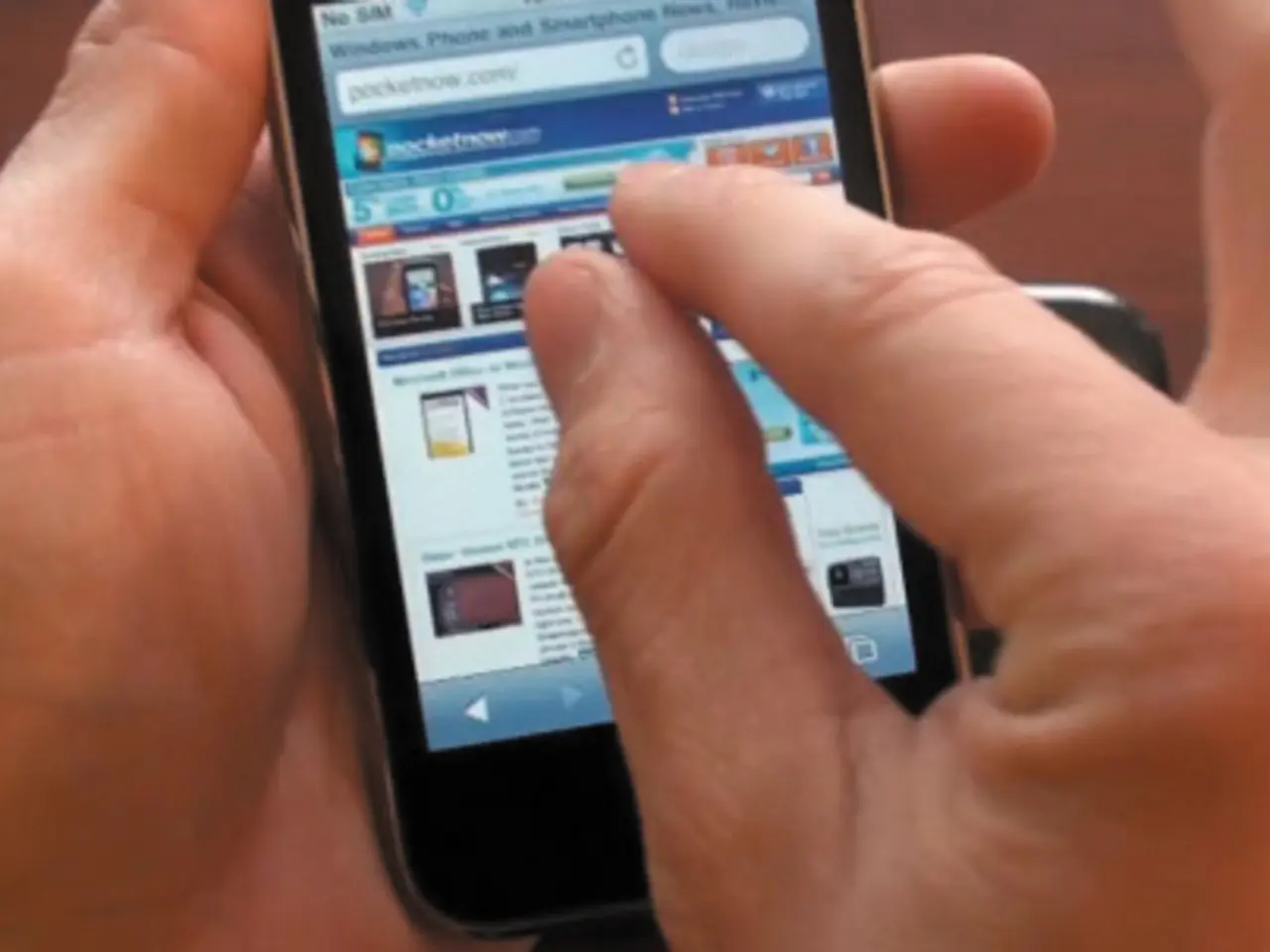New, Complimentary Text Messaging Function Introduced for Mobile Users - Could It Challenge WhatsApp and Its Peers?
New and Improved Communication on Smartphones: The Arrival of Real-Time Text (RTT) in Germany
Take a leap into the future of communication as German smartphone users receive a game-changing upgrade. Starting June 28, 2025, Real-Time Text (RTT) will be made available nationwide, providing a unique real-time text messaging experience during a call. This feature is particularly tailored for individuals with hearing or speech difficulties, enhancing their communication capabilities dramatically.
RTT will seamlessly integrate into mobile network systems, eliminating the need for additional apps or internet connection. With RTT, the entered text transmits character by character in real-time to the conversation partner, without sending separate messages. This innovative feature is part of the European Accessibility Act and mandatory for all new smartphone models in the EU. Existing devices that are technically compatible will be updated via software.
RTT Comes to the Rescue in Emergencies
RTT works over LTE, 5G, and Wi-Fi connections, sans any extra charges as it falls under existing voice flat rates. However, certain features on WhatsApp may become paid, which end-users have recently discovered through a surprising new chat window and potential introduction of a PIN.
Compared to messaging services, RTT shines in emergency situations by providing discreet communication when speaking out loud may not be safe or possible. Beginning in 2027, RTT will be mandatory for emergency calls, granting affected individuals the option to contact authorities discreetly during critical situations.
Major mobile network providers like Telekom, Vodafone, and Telefónica have already pledged to implement RTT gradually. They view it as a crucial step towards more inclusive communication.
Potential Delays for Android Phones
According to Deutsche Telekom, three prerequisites are essential for Real-Time Text:- An active voice connection, as RTT operates concurrently with a voice-based call.- Network availability, as RTT is supported by LTE, 5G, and during calls via a Wi-Fi connection (Wi-Fi call).- A suitable smartphone, as RTT is only accessible on devices running Android (version 10 or higher) or iOS (version 11.2 or higher).
In essence, the Real-Time Text (RTT) feature is poised to revolutionize communication for smartphone users in Germany and across the EU, benefiting particularly those with hearing or speech impairments. Mandatory inclusion in emergency calls emphasizes its critical role in fostering universal accessibility in telephony, marking a momentous stride forward in digital inclusion. This feature will undoubtedly improve communication equity for millions.
Key Impacts of RTT on Communication for Users with Hearing or Speech Impairments
- Real-Time Text During Phone Calls: RTT allows users to send text messages that appear instantly as they are typed, during an active voice call. This real-time visibility eliminates the typical delay associated with traditional texting, where messages are sent and received only upon completion.
- Improved Accessibility: RTT is designed as an accessibility feature mandated by the Accessibility Improvement Act, activated by Germany's four major network operators from June 28, 2025. Compatible smartphones enable users to activate RTT through the phone app's accessibility settings, seamlessly integrating it into regular calling functions.
- Mandatory for Emergency Calls Across the EU: Starting 2027, RTT will be compulsory for emergency calls across the EU. This regulation allows individuals with hearing or speech difficulties to communicate discreetly and quickly with emergency services in dangerous or noisy situations.
- Adaptable Communication: By combining RTT with features like live captions on calls, users can see what the other party is typing instantly, allowing for two-way, accessible communication that extends beyond those with impairments, benefiting anyone in challenging communication scenarios.
- Data-Friendly: RTT messages are transmitted via the mobile voice network, consuming no mobile data plans, alleviating cost concerns for regular users.
- Network and Device Requirements: RTT functionality depends on LTE, 5G, or Wi-Fi calling and may not work on older networks or during international calls unless both networks support RTT. Most modern smartphones already possess the technical capability to support RTT, requiring activation by the carrier and the user.
- Real-Time Text (RTT) will be available for German smartphone users starting June 28, 2025, facilitating real-time text messaging during calls, particularly beneficial for individuals with hearing or speech difficulties.
- As RTT is part of the European Accessibility Act, it will become mandatory for new smartphone models in the EU, ensuring a more inclusive communication experience across various devices.








